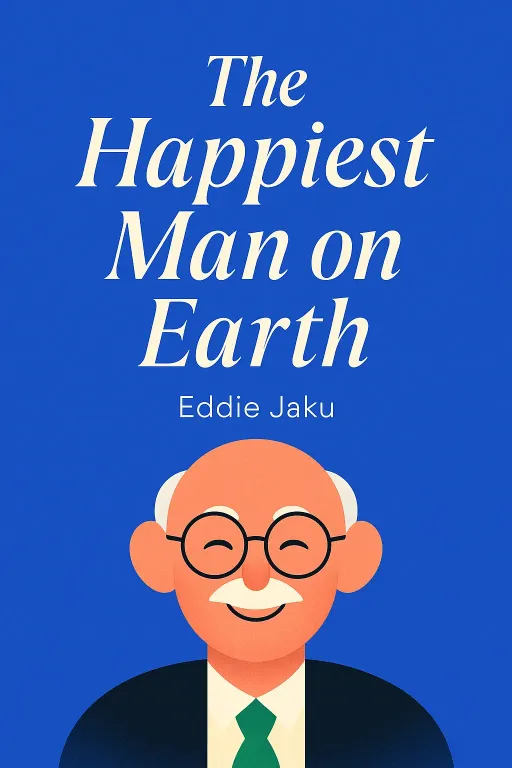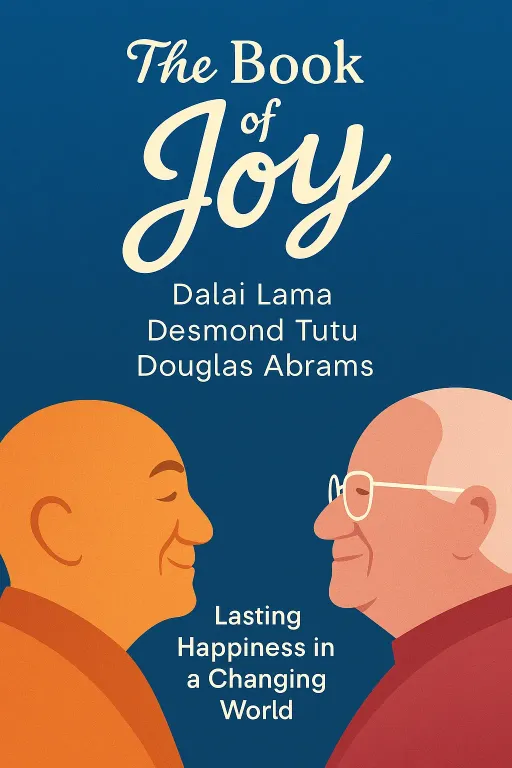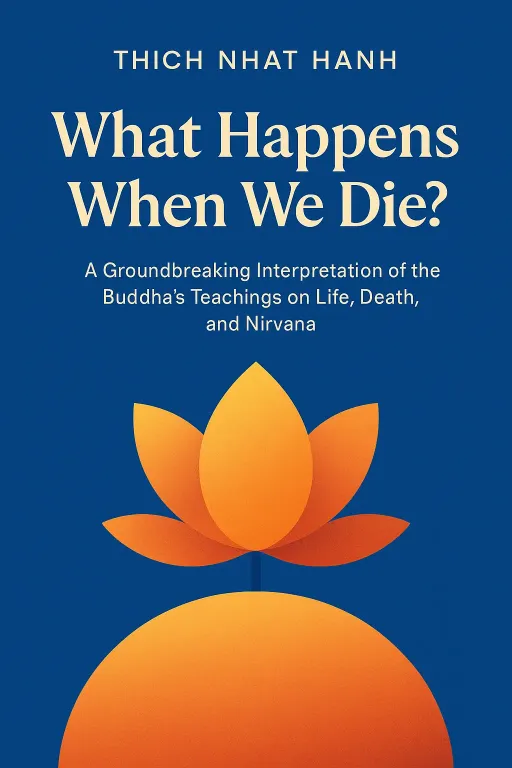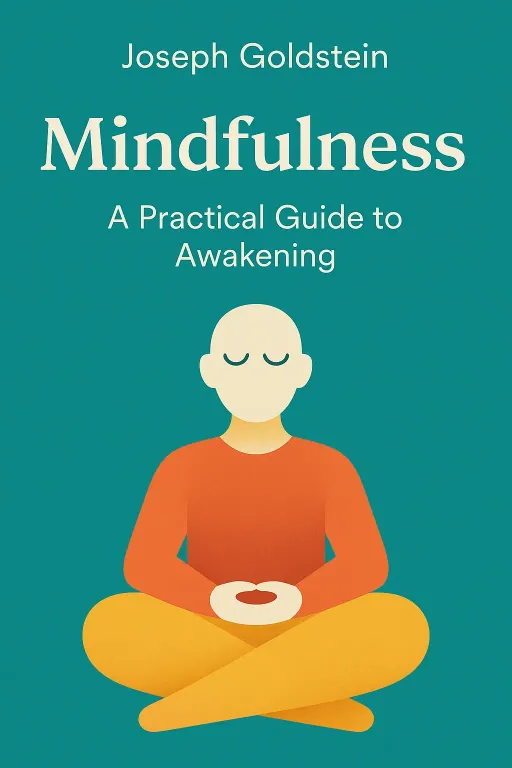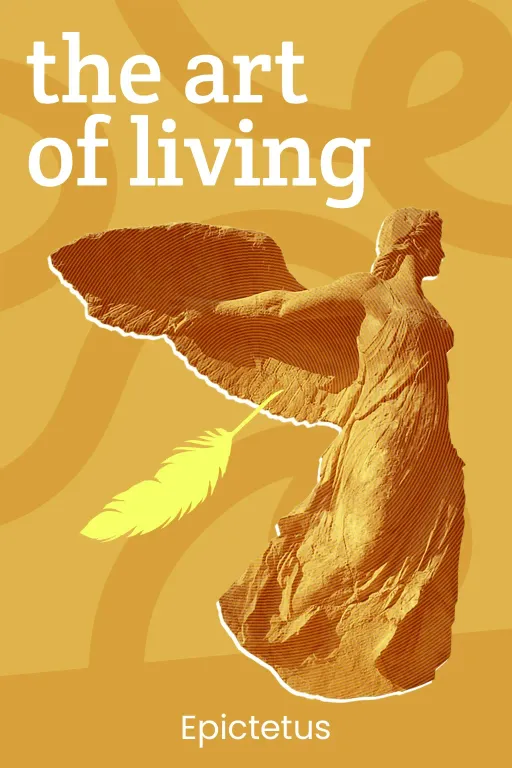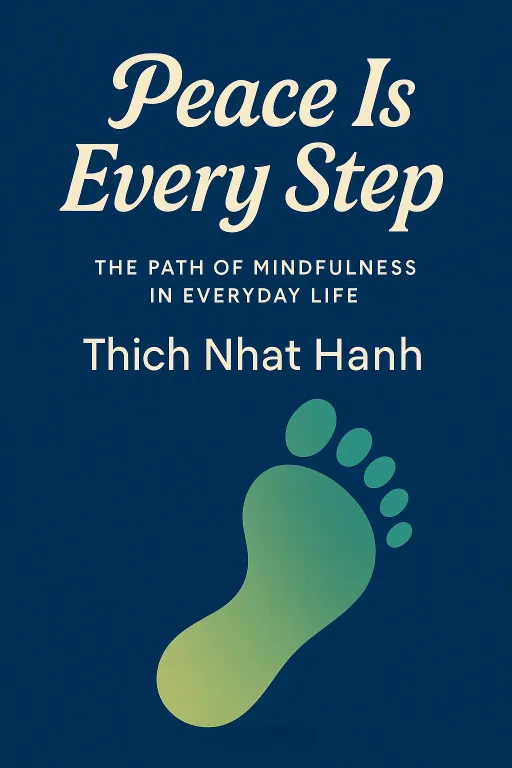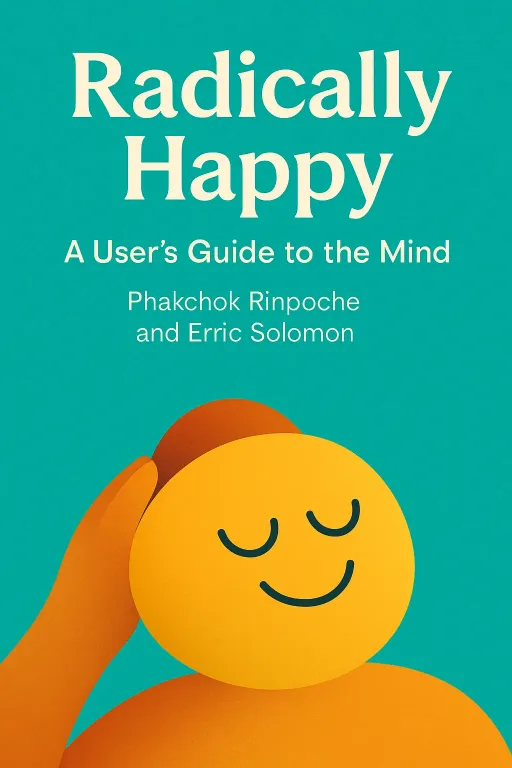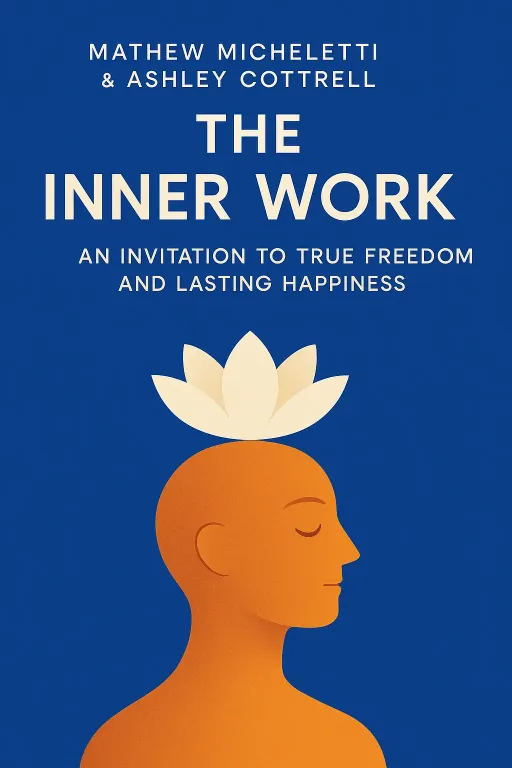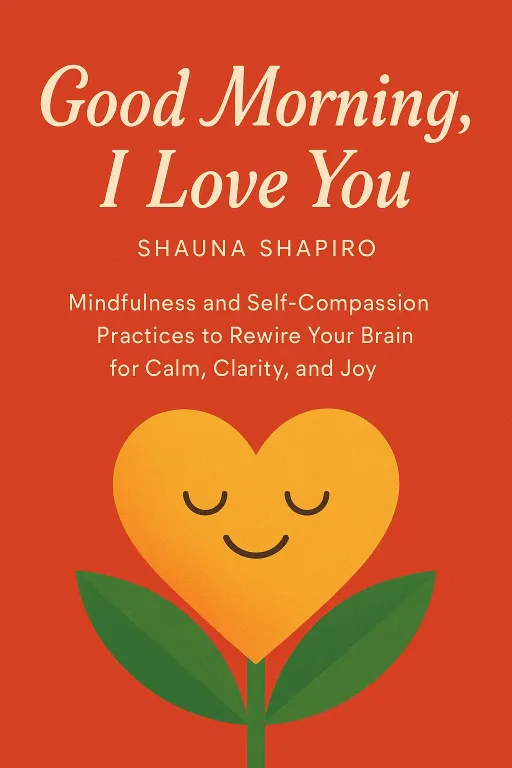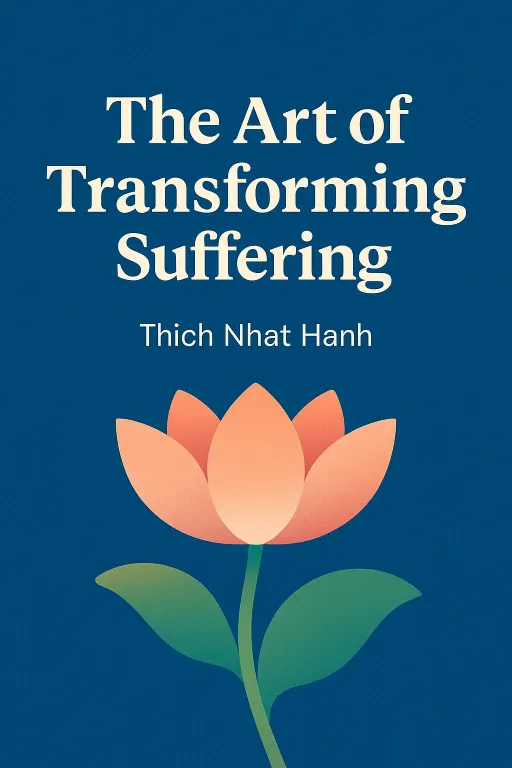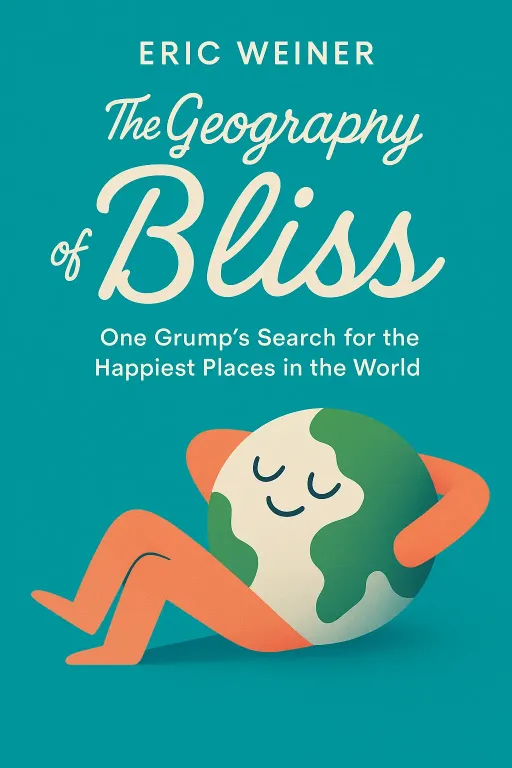
The Geography of Bliss
12 minOne Grump's Search for the Happiest Places in the World
Introduction
Narrator: What if the relentless pursuit of happiness is the very thing making us miserable? We are told that happiness is an inside job, a state of mind we can achieve through positive thinking and sheer force of will. But what if that’s only half the story? What if our environment, our culture, and the very place we call home have a profound, measurable impact on our well-being? This is the provocative question at the heart of Eric Weiner’s book, The Geography of Bliss. A self-proclaimed grump and former foreign correspondent who spent years reporting from the world’s most unhappy places, Weiner embarks on a global quest. He travels not as a tourist, but as an investigator, seeking to uncover the secrets of the world's happiest—and unhappiest—nations, challenging our most fundamental beliefs about what it truly means to live a good life.
The Geography of Joy: Why Your Address Might Matter More Than Your Attitude
Key Insight 1
Narrator: The book’s central argument is a direct challenge to the self-help industry’s focus on internal mindset. Weiner posits that happiness is not just a psychological state but is deeply influenced by external factors. Place, he argues, is the forgotten ingredient. To test this theory, his first stop is the Netherlands, a country that, despite its dreary weather, consistently ranks high in happiness surveys.
Here, he doesn’t find a nation of perpetually beaming people, but rather a society built on a foundation of tolerance and pragmatism. His journey leads him to Rotterdam and the World Database of Happiness, a real institution run by Professor Ruut Veenhoven. Veenhoven is the "Godfather of happiness research," a man who attempts to quantify joy through data. Weiner discovers that, according to the numbers, extroverts are happier than introverts, married people are happier than singles, and religious people are happier than non-believers.
But the Dutch model reveals a key tension. Their famous tolerance, which allows for legalized prostitution and marijuana, also fosters a kind of indifference. While this prevents extreme misery, it doesn't necessarily cultivate ecstatic joy. The Dutch are content, but perhaps not blissful. This first stop establishes a crucial idea: the ingredients for happiness—like money, pleasure, and freedom—are not enough. It’s the cultural recipe, the way a society arranges these factors, that truly matters.
The Contentment Conundrum: How Boredom in Switzerland and 'Enough' in Bhutan Outpace Bliss
Key Insight 2
Narrator: Moving from the data-driven Dutch, Weiner explores two countries that offer radical alternatives to the Western ideal of exuberant happiness. In Switzerland, another chart-topper for life satisfaction, he finds that happiness isn’t about joy, but about the absence of misery. The Swiss have engineered a society that minimizes envy, prioritizes order, and values punctuality and cleanliness to an extreme. One local even attributes Swiss happiness to the pristine condition of their public toilets.
Weiner discovers that the Swiss have perfected boredom. He visits the apartment where Albert Einstein developed the theory of relativity and wonders if the quiet, uneventful nature of Swiss life is precisely what allows for deep thought and creativity. This leads to a startling conclusion: perhaps a certain amount of boredom is essential for a happy life. The Swiss find a quiet "conjoyment"—a state more than contentment but less than joy—by avoiding dramatic highs and lows.
In stark contrast, the Himalayan kingdom of Bhutan measures its success not by Gross Domestic Product, but by Gross National Happiness (GNH). This isn't just a slogan; it's a government policy that prioritizes environmental conservation, cultural preservation, and psychological well-being over raw economic growth. Weiner interviews Karma Ura, a key architect of the GNH policy, who explains that the philosophy is rooted in a simple but profound concept: knowing how much is enough. In a world obsessed with more, Bhutan’s focus on sufficiency is a revolutionary act. It suggests that true progress lies not in endless accumulation but in balance and sustainability.
The Twin Voids: Why a Winning Lottery Ticket in Qatar and Pervasive Mistrust in Moldova Lead to the Same Place
Key Insight 3
Narrator: To understand the role of money, Weiner travels to Qatar, a nation that essentially won the geological lottery with its vast natural gas reserves. Here, citizens receive free healthcare, education, and land, and pay no taxes. It is a real-world experiment in what happens when a population is given everything. Yet, Weiner finds not bliss, but a society grappling with a sense of purposelessness and cultural insecurity.
The country’s immense wealth is used to purchase culture, from billion-dollar art sprees to hosting the World Cup, in an attempt to build a national identity from scratch. But this rapid modernization has created a disconnect from the past. More importantly, the cradle-to-grave welfare state has eroded a sense of civic responsibility. As one local explains, without the shared sacrifice of taxation, there is no real connection to the state. Qatar proves that while a lack of money can certainly cause unhappiness, an abundance of it is no guarantee of happiness.
From there, Weiner travels to the opposite end of the spectrum: Moldova, statistically one ofthe unhappiest countries on Earth. He finds a nation scarred by a history of invasions and Soviet rule, resulting in a culture of deep-seated mistrust. People don't trust their government, their neighbors, or even their families. This lack of social capital is corrosive. On a broken-down bus in the capital, the passengers file off without a word of complaint, a sign not of peaceful acceptance, but of learned helplessness. Moldova’s misery isn’t just about poverty; it’s about a complete breakdown of the trust that binds a society together, proving that the true opposite of happiness may not be sadness, but hopelessness.
The Felicity of Failure: Iceland's Secret to Thriving in the Dark
Key Insight 4
Narrator: How can a cold, dark, and isolated island nation be one of the happiest places on Earth? In Iceland, Weiner discovers a culture that thrives on its own contradictions. He learns that Icelanders have a remarkable tolerance for idiosyncrasy and a deep love for creativity. In a country with a tiny population, nearly everyone is in a band, has written a book, or is pursuing some artistic project.
Crucially, Icelandic culture embraces failure. Because the community is so small and interconnected, failure is not a source of shame but is seen as a necessary step in the creative process. This freedom from the fear of failure unleashes tremendous creative energy. Furthermore, Icelanders don't just endure their long, dark winters; they embrace them. The darkness, they say, fosters creativity and a deeper connection to one another. Iceland demonstrates that happiness isn't about creating a perfect, problem-free existence. Instead, it’s about building a resilient community that finds strength in its challenges and beauty in its imperfections.
The Relational Revolution: The Final Lesson from India's Chaos
Key Insight 5
Narrator: Weiner's journey culminates in India, a place he describes as embodying the ultimate contradiction: a land of profound spiritual wisdom and overwhelming daily chaos. It is a country that Westerners flock to seeking enlightenment, even as it ranks low on global happiness surveys. In India, Weiner learns that it’s possible to hold two opposing thoughts simultaneously without conflict—to love and hate a place at the same time.
He finds that happiness in India is less about individual achievement and more about social connection and acceptance. Even in the poorest slums, the intricate web of family and community provides a safety net that is often absent in wealthier, more individualistic societies. The Thai concept of mai pen lai ("never mind") and the Indian acceptance of fate teach a powerful lesson about letting go of the need for control.
The book’s most profound insight comes from his conversation with the Bhutanese scholar Karma Ura, who tells him, "There is no such thing as personal happiness. Happiness is one hundred percent relational." This is the thread that ties the entire journey together. From the trust in Switzerland to the community in Iceland and the family bonds in India, the happiest places are not those filled with the happiest individuals, but those with the strongest connections between people.
Conclusion
Narrator: Ultimately, The Geography of Bliss concludes that there is no single path to happiness. It is a multifaceted, culturally specific, and often contradictory pursuit. The book’s single most important takeaway is that happiness is not a destination you arrive at alone. It is relational. It is found not in the solitary pursuit of joy, but in the messy, complicated, and beautiful web of connections we build with the people and the places around us.
The journey leaves us with a challenging question: Are we searching for happiness in the right places? Perhaps the real journey isn't about changing our mindset, but about changing our environment—and realizing that the greatest treasure we can find is not a state of bliss, but a sense of belonging.
